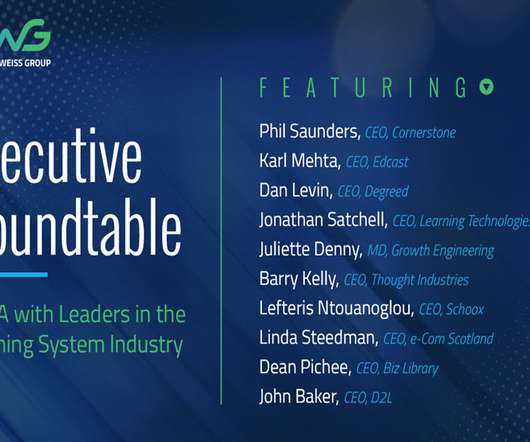The Skills Gap – The Correlation Between Training & the Skills Gap – Part III
Jigsaw Interactive
AUGUST 18, 2022
Companies that are willing to hire people with the right intelligence, background, attitude, values, and instincts and train them for specific skills don’t need to worry about a skills gap. Consider the following statistics : 74% of workers want to learn new skills. If you made the right hires, you can teach the right skills.




















Let's personalize your content